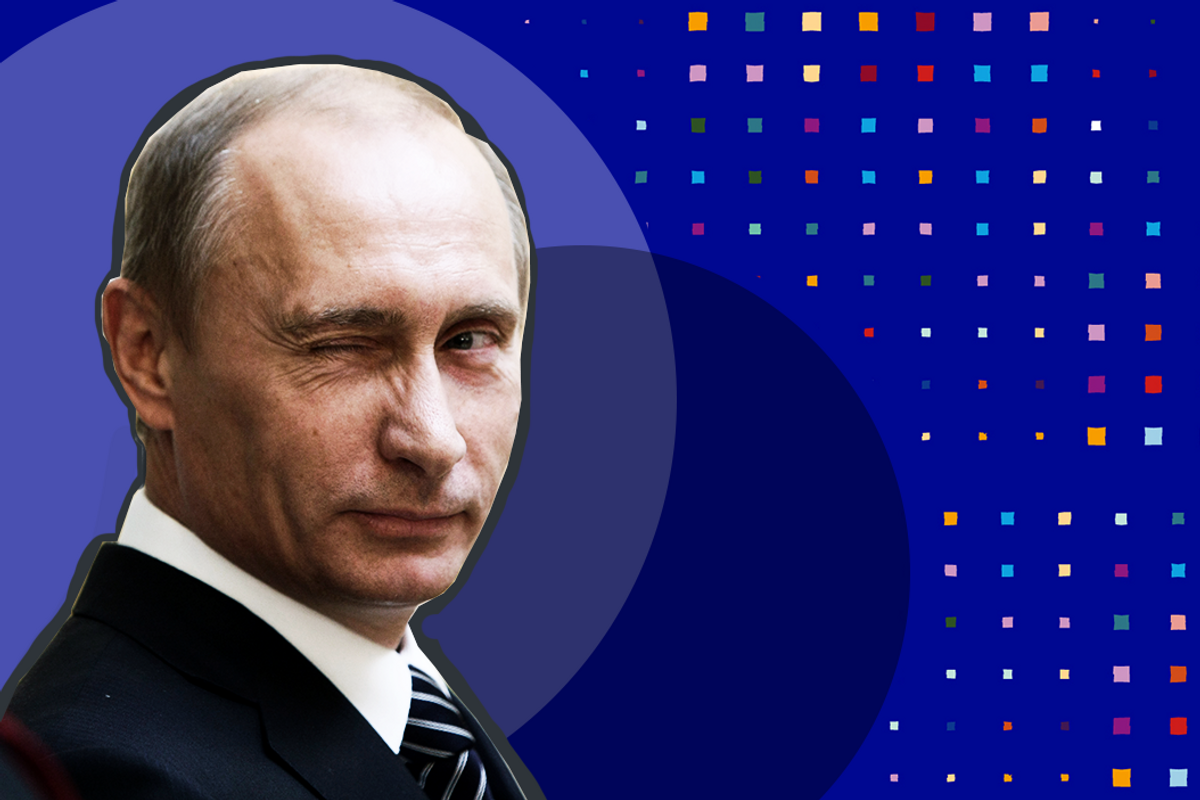World War III or nah? US President Joe Biden and his Russian counterpart Vladimir Putin are set to speak by phone on Tuesday, as the crisis surrounding Ukraine gets dicier by the day. Russia has massed more than 100,000 troops along its border with the country, and the US is warning that Putin is gearing up to invade soon, though the underlying intel isn’t public. No one is quite sure what Putin’s up to with this stunt. Is he trying to pressure Kyiv into moving ahead with the lopsided (but probably best possible) Minsk peace accords of 2015? Or is the Kremlin seeking a broader NATO commitment not to expand further? Or does Putin actually want to invade Ukraine? Either way, Biden has his work cut out for him. Putin is clearly more comfortable risking lives and money to preserve a sphere of influence in Ukraine than the West is, so the US president has to be careful: don’t set out any red lines that NATO isn’t willing to back, but also don’t push the situation into a broader war that no one (ideally) wants.
Exit Angela, enter omicron. Social Democrat Olaf Scholz will officially take over this week as German Chancellor, leading a coalition with the Greens and the business-friendly Free Democrats. His government has already laid out plans to accelerate Germany's transition to carbon neutrality, to bolster European sovereignty in the face of rising challenges from Russia and China, and to rein in fiscal spending – not only in Germany but across Europe – as the pandemic recedes. But one immediate challenge is that the pandemic isn't actually receding yet. Scholz will take office just as cases are surging. The current 7-day average of new cases in Germany is more than twice as high as the previous peak which was a year ago, before vaccines were rolled out. With the evidently more transmissible omicron variant already spreading, Scholz has said he favors making vaccines obligatory, even as blowback against mandates has been rising in Europe.
"Remain in Mexico" policy is back. The US and Mexico several days ago reached a deal to restart the controversial “Remain in Mexico” policy, which requires that migrants seeking entry to the US wait south of the border while their asylum applications are processed. The policy has forced thousands of asylum-seekers to spend months – or even years – in rundown Mexican border towns where crime, rape, and kidnapping for ransom are rife. As part of the new deal, unaccompanied minors will be allowed to wait for asylum rulings in the US, and the Biden administration has agreed to improve human rights conditions at the border, including by providing migrants with COVID-19 vaccines. Upon coming into office, Biden pledged to take a more "humane" approach to migration than his predecessor, but in August the Supreme Court ruled that he had to follow “Remain in Mexico.” He has also been criticized by rights groups for failing to undo the Trump administration’s use of a public health rule to keep migrants out. The new agreement between Mexico and the US comes just days after Washington pledged to help Central America deal with the root causes of migration.
France’s right-leaning election. Valérie Pécresse, a minister in former president Nicolas Sarkozy’s government, won a primary on Saturday to lead France’s conservative Les Republicains party in next year’s presidential election. Pécresse is the first woman to head the party of Charles de Gaulle and Jacques Chirac, and is hoping to reinvigorate a party that’s become mostly irrelevant in French politics as anti-establishment sentiment grips the electorate. But Pécresse – a mainstream conservative – has her work cut out for her in an election where far-right firebrands Marine Le Pen and Éric Zemmour are holding their own in the polls. President Emmanuel Macron is still five points ahead of Le Pen, who is currently in second place, and would reap about a quarter of the vote if the April elections were held today. But Pécresse’s entry into the race could cause some trouble for Macron. He has tried to paint himself both as a political outsider and as a middle-of-the-road liberal but he is broadly seen as a wishy-washy ideological chameleon. Macron could now be forced to veer further to the right to attract voters who might resonate with Pécresse’s tough-on-immigration and pro-business agenda, particularly amid fears that the omicron variant could force Macron to re-impose unpopular lockdowns.
Suu Kyi's first verdict handed down. On Monday, a Myanmar court sentenced deposed leader Aung San Suu Kyi to four years in prison for breaking COVID rules and incitement. Suu Kyi faces 11 charges in total, including corruption and leaking state secrets – which could land her in prison for more than 100 years. The UN has said the charges are a sham meant to secure the military junta’s hold on power. To date, the trial has been closed to the media, while Suu Kyi’s lawyers have also been banned from making public statements. Suu Kyi, who is seen by many in Myanmar as the only politician that can steer the country’s full democratic transition, has not been seen in public since the coup. Since then, the military has been accused of human rights violations for cracking down on peaceful anti-junta demonstrators, resulting in at least 1,200 deaths. Just this past weekend, the military rammed vehicles into a group of demonstrators, injuring dozens. The UN has warned that armed groups are training in jungles to overthrow the military, and that the country is on the cusp of full-blown civil war.







